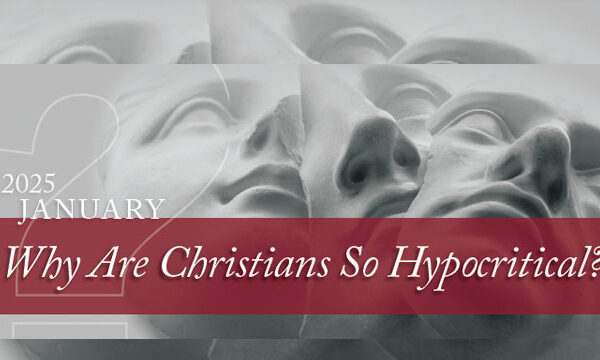Back to series



Concise Theology
A Guide to Historic Christian Beliefs
Click here to open a Print - Friendly PDF
REVELATION: Scripture is the Word of God
Christianity is the true worship and service of the true God, humankind’s Creator and Redeemer. It is a religion that rests on revelation: nobody would know the truth about God, or be able to relate to him in a personal way, had not God first acted to make himself known. But God has so acted, and the sixty-six books of the Bible, thirty-nine written before Christ came and twenty-seven after, are together the record, interpretation, expression, and embodiment of his self-disclosure. God and godliness are the Bible’s uniting themes.
From one standpoint, the Scriptures (Scriptures means “writings”) are the faithful testimony of the godly to the God whom they loved and served; from another standpoint, through a unique exercise of divine overruling in their composition, they are God’s own testimony and teaching in human form. The church calls these writings the Word of God because their authorship and contents are both divine.
Decisive assurance that Scripture is from God and consists entirely of his wisdom and truth comes from Jesus Christ and his apostles, who taught in his name. Jesus, God incarnate, viewed his Bible (our Old Testament) as his heavenly Father’s written instruction, which he no less than others must obey (Matt. 4:4, 7, 10; 5:19-20; 19:4-6; 26:31, 52-54; Luke 4:16-21; 16:17; 18:31-33; 22:37; 24:25-27, 45-47; John 10:35), and which he had come to fulfill (Matt. 5:17-18; 26:24; John 5:46). Paul described the Old Testament as entirely “God-breathed”—that is, a product of God’s Spirit (“breath”) just as the cosmos is (Ps. 33:6; Gen. 1:2)—and written to teach Christianity (2 Tim. 3:15-17; Rom. 15:4; 1 Cor. 10:11). Peter affirms the divine origin of biblical teaching in 2 Peter 1:21 and 1 Peter 1:10-12, and so also by his manner of quoting does the writer to the Hebrews (Heb. 1:5-13; 3:7; 4:3; 10:5-7, 15-17; cf. Acts 4:25; 28:25-27).
Since the apostles’ teaching about Christ is itself revealed truth in God-taught words (1 Cor. 2:12-13), the church rightly regards authentic apostolic writings as completing the Scriptures. Already Peter refers to Paul’s letters as Scripture (2 Pet. 3:15-16), and Paul is apparently calling Luke’s gospel Scripture in 1 Timothy 5:18, where he quotes the words of Luke 10:7.
The idea of written directives from God himself as a basis for godly living goes back to God’s act of inscribing the Decalogue on stone tablets and then prompting Moses to write his laws and the history of his dealings with his people (Exod. 32:15-16; 34:1, 27-28; Num. 33:2; Deut. 31:9). Digesting and living by this material was always central to true devotion in Israel for both leaders and ordinary people (Josh. 1:7-8; 2 Kings 17:13; 22:8-13; 1 Chron. 22:12-13; Neh. 8; Ps. 119). The principle that all must be governed by the Scriptures, that is, by the Old and New Testaments taken together, is equally basic to Christianity.
What Scripture says, God says; for, in a manner comparable only to the deeper mystery of the Incarnation, the Bible is both fully human and fully divine. So all its manifold contents—histories, prophecies, poems, songs, wisdom writings, sermons, statistics, letters, and whatever else—should be received as from God, and all that Bible writers teach should be revered as God’s authoritative instruction. Christians should be grateful to God for the gift of his written Word, and conscientious in basing their faith and life entirely and exclusively upon it. Otherwise, we cannot ever honor or please him as he calls us to do.
INTERPRETATION: Christians Can Understand the Word of God
All Christians have a right and duty not only to learn from the church’s heritage of faith but also to interpret Scripture for themselves. The church of Rome doubts this, alleging that individuals easily misinterpret the Scriptures. This is true; but the following rules, faithfully observed, will help prevent that from happening.
Every book of Scripture is a human composition, and though it should always be revered as the Word of God, interpretation of it must start from its human character. Allegorizing, therefore, which disregards the human writer’s expressed meaning is never appropriate.
Each book was written not in code but in a way that could be understood by the readership to which it was addressed. This is true even of the books that primarily use symbolism: Daniel, Zechariah, and Revelation. The main thrust is always clear, even if details are clouded. So when we understand the words used, the historical background, and the cultural conventions of the writer and his readers, we are well on the way to grasping the thoughts that are being conveyed.
Spiritual understanding—that is, the discernment of the reality of God, his ways with humankind, his present will, and one’s own relationship to him now and for the future—will not however reach us from the text until the veil is removed from our hearts and we are able to share the writer’s own passion to know and please and honor God (2 Cor. 3:16; 1 Cor. 2:14). Prayer that God’s Spirit may generate this passion in us and show us God in the text is needed here. (See Ps. 119:18-19, 26-27, 33-34, 73, 125, 144, 169; Eph. 1:17-19; 3:16-19.)
Each book had its place in the progress of God’s revelation of grace, which began in Eden and reached its climax in Jesus Christ, Pentecost, and the apostolic New Testament. That place must be borne in mind when studying the text. The Psalms, for instance, model the godly heart in every age, but express its prayers and praises in terms of the typical realities (earthly kings, kingdoms, health, wealth, war, long life) that circumscribed the life of grace in the pre-Christian era.
Each book proceeded from the same divine mind, so the teaching of the Bible’s sixty-six books will be complementary and self-consistent. If we cannot yet see this, the fault is in us, not in Scripture. It is certain that Scripture nowhere contradicts Scripture; rather, one passage explains another. This sound principle of interpreting Scripture by Scripture is sometimes called the analogy of Scripture or the analogy of faith.
Each book exhibits unchanging truth about God, humanity, godliness, and ungodliness, applied to and illustrated by particular situations in which individuals and groups found themselves. The final stage in biblical interpretation is to reapply these truths to our own life situations; this is the way to discern what God in Scripture is saying to us at this moment. Examples of such reapplication are Josiah’s realization of God’s wrath at Judah’s failure to observe his law (2 Kings 22:8-13), Jesus’ reasoning from Genesis 2:24 (Matt. 19:4-6), and Paul’s use of Genesis 15:6 and Psalm 32:1-2 to show the reality of present righteousness by faith (Rom. 4:1-8).
No meaning may be read into or imposed on Scripture that cannot with certainty be read out of Scripture—shown, that is, to be unambiguously expressed by one or more of the human writers.
Careful and prayerful observance of these rules is a mark of every Christian who “correctly handles the word of truth” (2 Tim. 2:15).

J.I. Packer
J.I. Packer, Author, (1926 – 2020), known for his best-selling book, Knowing God, as well as his work as an editor for the English Standard Version of the Bible. He was a signer on the 1978 Chicago Statement on Biblical Inerrancy, a member on the advisory board of the Council on Biblical Manhood and Womanhood, and also was involved in the ecumenical book Evangelicals and Catholics Together in 1994. His last teaching position was as the board of governors' Professor of Theology at Regent College in Vancouver, British Columbia. He was awarded the St. Cuthbert's Cross at the Provincial Assembly of ACNA on 27 June 2014 for his "unparalleled contribution to Anglican and global Christianity."

 COPYRIGHT: This publication is published by C.S. Lewis Institute; 8001 Braddock Road, Suite 301; Springfield, VA 22151. Portions of the publication may be reproduced for noncommercial, local church or ministry use without prior permission. Electronic copies of the PDF files may be duplicated and transmitted via e-mail for personal and church use. Articles may not be modified without prior written permission of the Institute. For questions, contact the Institute: 703.914.5602 or email us.
COPYRIGHT: This publication is published by C.S. Lewis Institute; 8001 Braddock Road, Suite 301; Springfield, VA 22151. Portions of the publication may be reproduced for noncommercial, local church or ministry use without prior permission. Electronic copies of the PDF files may be duplicated and transmitted via e-mail for personal and church use. Articles may not be modified without prior written permission of the Institute. For questions, contact the Institute: 703.914.5602 or email us.
-
Recent Podcasts
The Priority of Prayer
by Thomas A. Tarrants, Aimee Riegert on December 27, 2024The Kingdom of God moves forward through Prayer....Read More
-
Hyper-Realist Finds Faith – Spencer Durrenberger’s Story
by Spencer Durrenberger on December 20, 2024
-
First Steps to Loving and Understanding Our Jewish Neighbors
by Aimee Riegert, Randy Newman on December 13, 2024
-
Recent Publications
Why Are Christians So Hypocritical?
by Christopher L. Reese on January 1, 2025Oh, the hypocrisy of those Christians—they talk so...Read More
-
How Artists and Their Art Can Point Us to the Creator
by Russ Ramsey on December 2, 2024
-
What about Jesus’s Childhood?
by Jim Phillips on December 1, 2024
0
All Booked
0.00
All Booked
0.00
All Booked
23903
Fellows Program – Applications Available on February 1st!
https://www.cslewisinstitute.org/?event=fellows-program-applications-available-on-february-1st&event_date=2025-02-01®=1
https://www.paypal.com/cgi-bin/webscr
2025-02-01

Next coming event
Days
Hours
Minutes
Seconds
Fellows Program – Applications Available on February 1st!
On February 1, 2025 at 7:00 amTags
Speakers
Team Members

J.I. Packer
J.I. Packer, Author, (1926 – 2020), known for his best-selling book, Knowing God, as well as his work as an editor for the English Standard Version of the Bible. He was a signer on the 1978 Chicago Statement on Biblical Inerrancy, a member on the advisory board of the Council on Biblical Manhood and Womanhood, and also was involved in the ecumenical book Evangelicals and Catholics Together in 1994. His last teaching position was as the board of governors' Professor of Theology at Regent College in Vancouver, British Columbia. He was awarded the St. Cuthbert's Cross at the Provincial Assembly of ACNA on 27 June 2014 for his "unparalleled contribution to Anglican and global Christianity."







